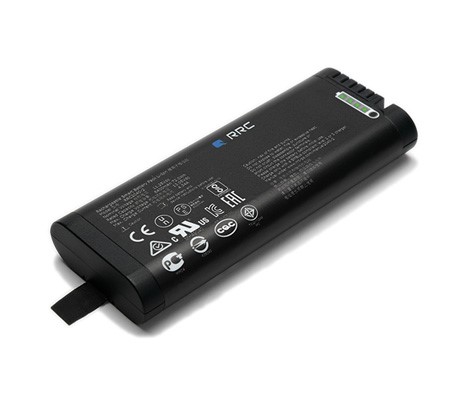Advancements in nanotechnology have profoundly impacted the development of rechargeable lithium-ion battery packs, revolutionizing their efficiency and capabilities. At the core of this transformation lies the ability to manipulate materials at an incredibly small scale, between 1 to 100 nanometers, to enhance various aspects of battery performance.
Nanotechnology's Role in Battery Improvement
Nanotechnology has enabled significant improvements in energy storage and battery lifespan. By incorporating nanomaterials such as nanowires and nanoparticles into battery electrodes, manufacturers can increase the surface area available for chemical reactions. This enhancement allows for more lithium ions to be stored and released during charging and discharging, leading to batteries that can last longer between charges.
Enhanced Efficiency and Power
The use of nanotechnology also improves the efficiency of lithium-ion batteries. Nanoscale engineering helps to stabilize the battery's internal structure, reducing energy loss during operation. This results in batteries that can deliver more power without overheating or losing capacity over time.
Safety Innovations
Another critical benefit of nanotechnology in battery development is improved safety. Nanomaterials can be designed to enhance the stability of battery components, reducing the risk of short circuits and thermal runaway. This makes lithium-ion batteries safer for use in various applications, from consumer electronics to electric vehicles.
Environmental Impact
Advancements in nanotechnology also contribute to environmental sustainability. By optimizing the materials used in battery production and improving recycling processes, manufacturers can reduce the environmental footprint of lithium-ion batteries. This includes minimizing the use of rare earth elements and toxic chemicals traditionally found in battery manufacturing.
Future Directions
Looking forward, ongoing research in nanotechnology continues to push the boundaries of what is possible in battery technology. Scientists are exploring new nanomaterials and manufacturing techniques to further enhance battery performance and durability. Innovations such as self-healing electrodes and smart battery management systems are expected to lead to even more efficient and reliable lithium-ion batteries in the future.
Improved Charging Speeds and Durability
Nanotechnology facilitates faster charging speeds and enhances the durability of rechargeable lithium-ion battery packs. Nanostructured electrodes allow for quicker ion diffusion and more efficient electron transfer, reducing charging times significantly. Moreover, the enhanced structural stability provided by nanomaterials helps batteries withstand numerous charge-discharge cycles without degradation, making them more reliable and long-lasting.
Integration with Smart Grid Technologies
Advancements in nanotechnology enable rechargeable lithium ion battery pack to integrate seamlessly with smart grid technologies. Nanoscale sensors and advanced materials improve the ability of batteries to communicate with the grid, optimizing energy storage and distribution. This integration supports grid stability by balancing supply and demand fluctuations, promoting more efficient use of renewable energy sources and enhancing overall energy management capabilities.
Conclusion
Nanotechnology plays a crucial role in advancing the capabilities of rechargeable lithium-ion battery packs. By leveraging nanoscale materials and engineering techniques, manufacturers can create batteries that are more powerful, efficient, and safer than ever before. As Emerging Power continues to innovate in this field, the future holds promising advancements that could reshape energy storage solutions across industries.

